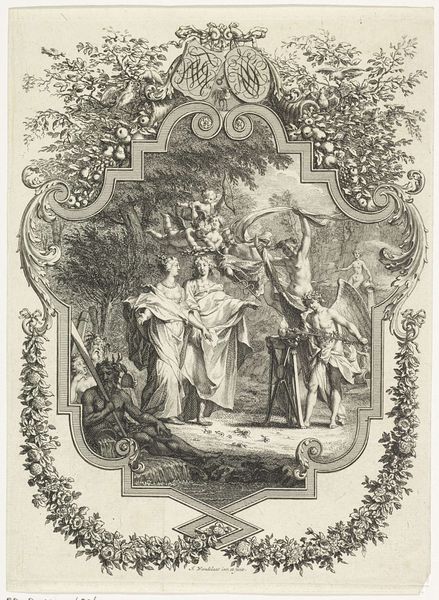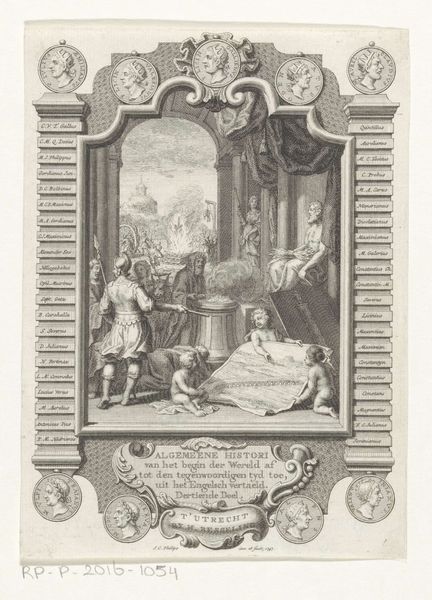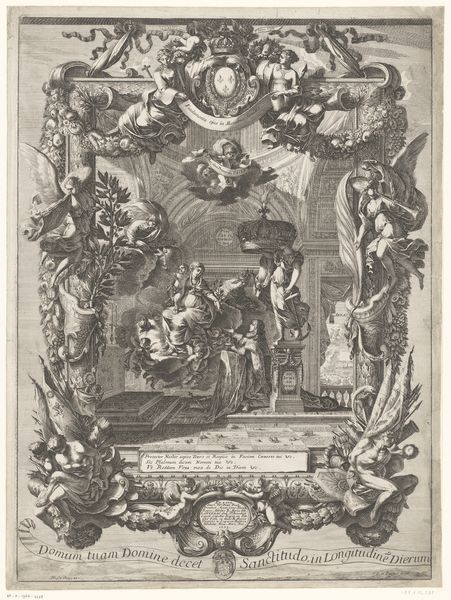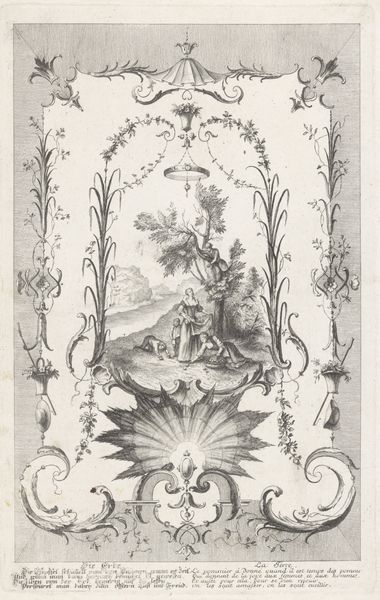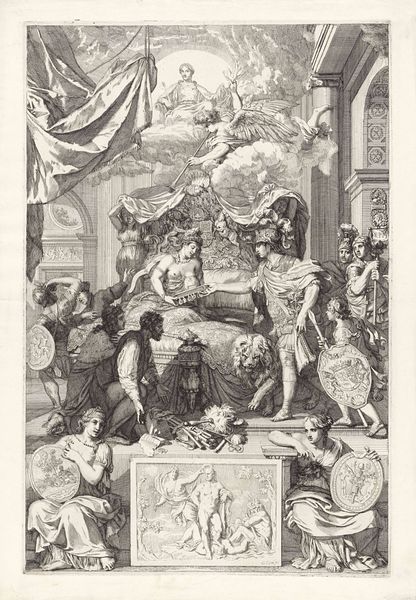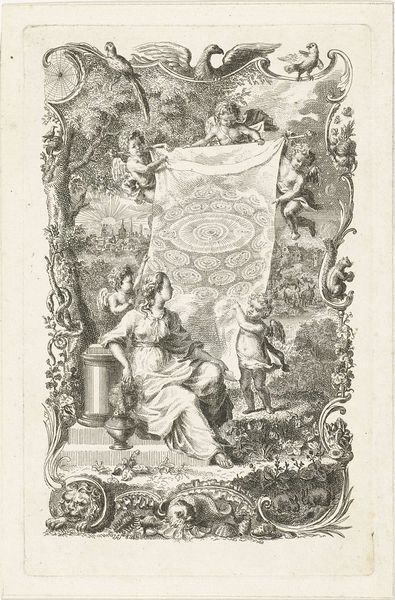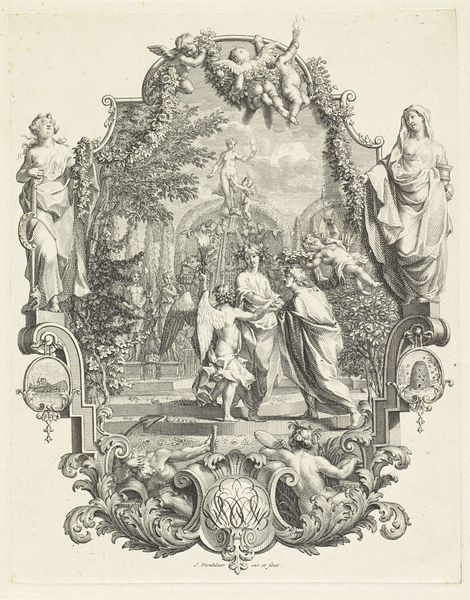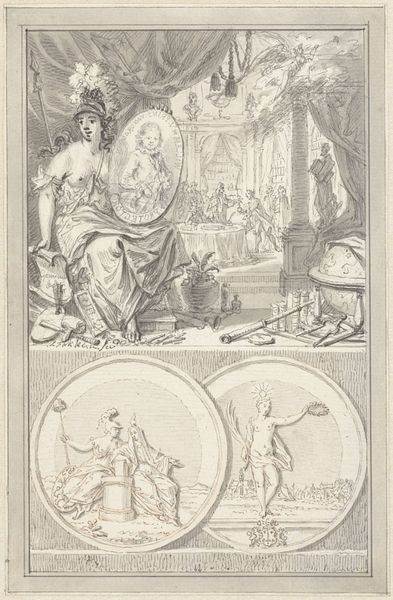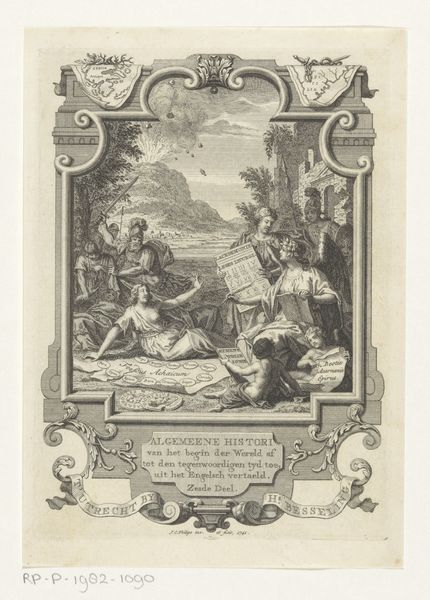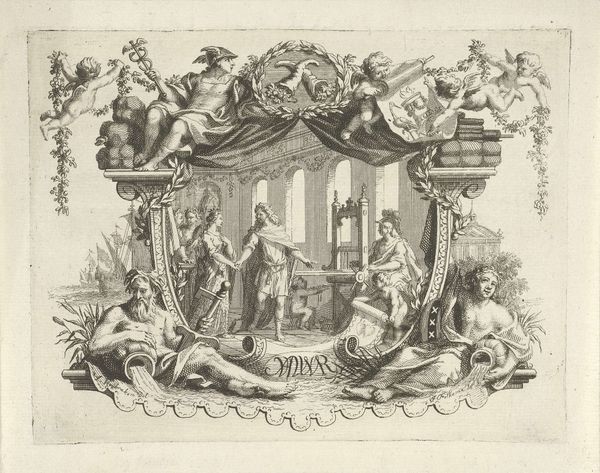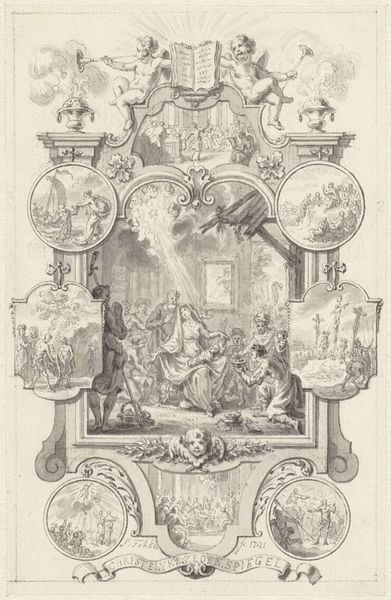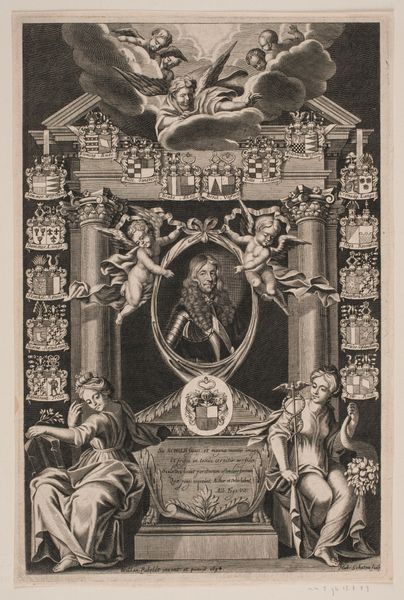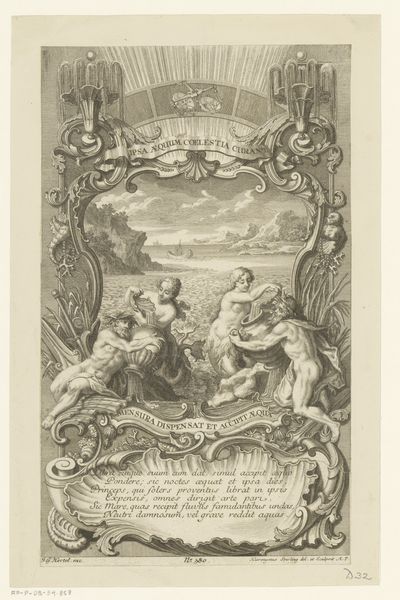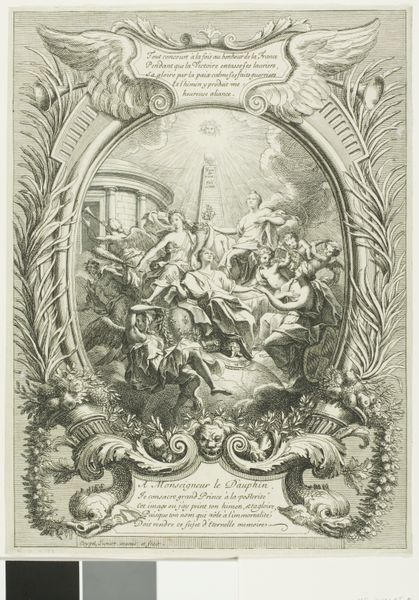
Allegorische voorstelling ter gelegenheid van het huwelijk van William Sterling en Johanna Maria Van Rijckevorsel 1744
0:00
0:00
janpunt
Rijksmuseum
print, engraving
#
allegory
#
baroque
#
pen drawing
# print
#
figuration
#
history-painting
#
engraving
Dimensions: height 250 mm, width 194 mm
Copyright: Rijks Museum: Open Domain
This is an allegorical print made by Jan Punt in 1749, commemorating the wedding of William Sterling and Johanna Maria Van Rijckevorsel. Its monochromatic palette emphasizes form and composition as the primary vehicles of meaning. The print is structured around a central scene framed by ornate, swirling patterns. These decorative elements serve not merely as embellishment but as a semiotic boundary, setting the stage for the marital narrative. Within this frame, Punt employs classical figures and architectural motifs to construct an idealized vision of marriage. Angels hover with garlands, while classical figures gesture in harmonious accord, creating a sense of balance. This idealized representation of marriage operates within a larger cultural discourse of the time, reflecting societal values and expectations. Yet, by presenting marriage through the lens of allegory, Punt destabilizes its fixed meaning, transforming it into a symbolic construct open to interpretation. The artwork's true strength lies in its ability to blend form and allegory, inviting viewers to decode the underlying structures of marriage through careful observation and thoughtful reflection.
Comments
No comments
Be the first to comment and join the conversation on the ultimate creative platform.
